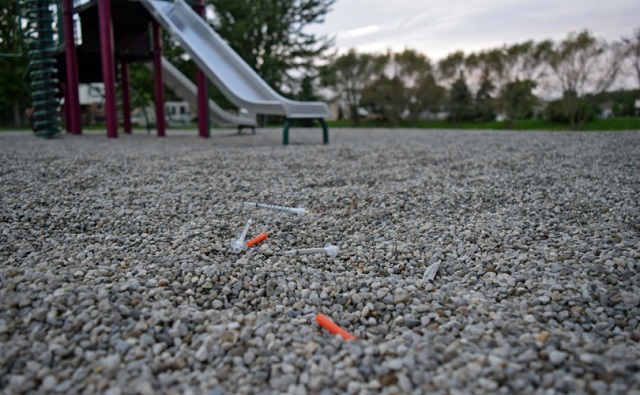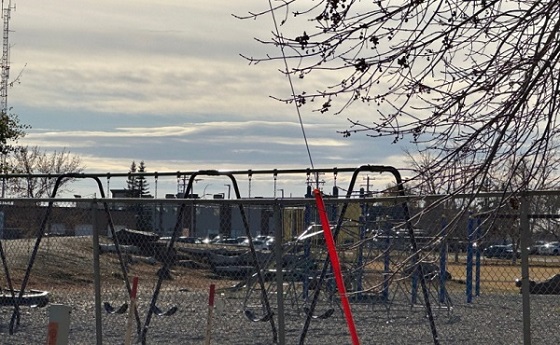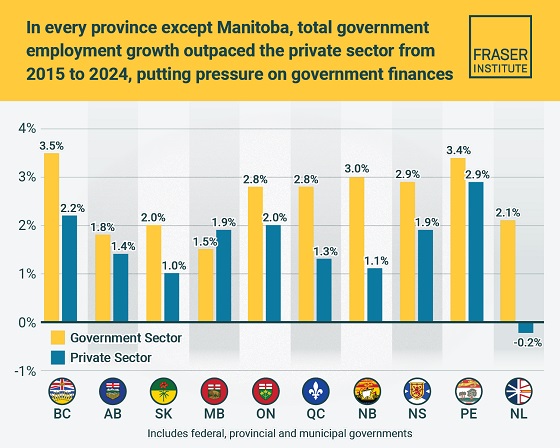Addictions
British Columbia Supreme Court rules province’s constitution protects hard drug use on playgrounds

From LifeSiteNews
Hinkson even admitted that playgrounds would be exposed to having bio-hazardous drug paraphernalia but claimed that these issues take a back seat to the province’s drug overdose problems.
In light of the federal government relaxed stance on hard drug use in British Columbia, the province’s Supreme Court ruled that preventing drug users from going near playgrounds would violate their constitutional right and cause “irreparable harm.”
The NDP provincial government was considering amendments to a federal government hard drug use allowance pilot that allowed hard drugs to be consumed in small quantities by banning hard drug use near areas where kids gather, such as playgrounds.
NDP British Columbia Premier David Eby had said of his government’s amendment in May 2023 that “nobody wants this activity affecting our kids, and we will do something.”
Many municipalities had complained that parks and playgrounds should be off-limits to drug users and stay protected, per the Controlled Drugs and Substances Act.
The government’s amendment was encoded after a bill was passed last November that directed police to ensure illegal drugs in playgrounds were not allowed, and those doing so should be told to leave or face arrest if they did not comply.
The province’s playground amendment was put in place on September 18, 2023, which in effect barred hard drug use near playgrounds. It should be noted that the original decriminalization law included an exception banning drug use near “childcare facility premises.”
However, the province’s Supreme Court responded with an injunction that struck down this amendment in December 2023. The court’s injunction to the province’s law, which banned hard drug use near playgrounds, ruled that this amendment was a violation of the Charter of Rights and Freedoms.
According to provincial Supreme Court Chief Justice Christopher Hinkson, banning hard drug use in areas where kids congregate would cause “harm” to drug users.
Hinkson even admitted that playgrounds would be exposed to having bio-hazardous drug paraphernalia but claimed that these issues take a back seat to the province’s drug overdose problems.
“I … accept that the attendant public safety risks are particularly concerning given that many of the restricted areas and places in the Act are frequented by seniors, people with disabilities, and families with young children,” Hinkson wrote in his ruling.
Ruling ‘outrageous,’ says Conservative MP
Conservative MP Kerry-Lynne Findlay for South Surrey-White Rock, British Columbia, blasted the court’s ruling.
“Crime, chaos, drugs and disorder. An outrageous decision by the BC Supreme Court that only advances Trudeau’s radical agenda and puts our children at risk,” Findlay posted December 30 on X (formerly Twitter).
“Instead of normalizing open drug use, Conservatives will bring home safe communities & ensure our loved ones suffering from addiction are treated with compassion and on a path to recovery.”
The court injunction stemmed from the Harm Reduction Nurses Association arguing in court that restricting hard drug use near playgrounds would result in “lone drug use” that would lead to more overdoses.
“It is apparent that public consumption and consuming drugs in the company of others is oftentimes the safest, healthiest, and/or only available option for an individual,” Hinkson ruled.
Provincial government lawyers argued in court that the Harm Reduction Nurses Association was trying to use “anecdotal evidence, unsubstantiated conclusory statements” by claiming its amendment would cause harm.
Hinkson disagreed. “Given the evidence before me, I find that there is a high degree of probability that at least some of the harm set out by the plaintiff will in fact occur,” he said.
He also said the provincial amendment would violate one’s “right to life, liberty and security of the person” guaranteed by section 7 of the Charter of Rights and Freedoms.
“I am satisfied that the suspension of the Act … can be properly characterized as a substantial public benefit,” he ruled.
His injunction will stay in place until March 31, 2024.
Deaths from drug overdoses in Canada have gone through the roof, notably after the Trudeau government relaxed the nation’s hard drug rules in British Columbia on a trial basis.
Trudeau’s federal policy put in place in May 2022 in effect decriminalized hard drugs, including heroin, cocaine, fentanyl, meth and MDMA on a trial-run basis in British Columbia. While the policy was approved in 2022, it did not come into effect until February 2023.
Under the policy, the federal government began allowing people within the province to possess up to 2.5 grams of hard drugs without criminal penalty, but selling drugs remained a crime.
The policy has been widely criticized, especially after it was found that the province broke three different drug-related overdose records in the first month the new law was in effect.
Despite the policy, deaths from drug overdoses in Canada continue to skyrocket. The most recent statistics from 2021 show that they went up 33%.
Addictions
Activists Claim Dealers Can Fix Canada’s Drug Problem

By Adam Zivo
We should learn from misguided experiments with activist-driven drug ideologies.
Some Canadian public-health researchers have argued that the nation’s drug dealers, far from being a public scourge, are central to the cause of “harm reduction,” and that drug criminalization makes it harder for them to provide this much-needed “mutual aid.” Incredibly, these ideas have gained traction among Canada’s policymakers, and some have even been put into practice.
Gillian Kolla, an influential harm-reduction activist and researcher, spearheaded the push to whitewash drug trafficking in Canada. Over the past decade, she has advocated for many of the country’s failed laissez-faire drug policies. In her 2020 doctoral dissertation, she described her hands-on research into Toronto’s “harm reduction satellite sites”—government-funded programs that paid drug users to provide services out of their homes.
The sites Kolla studied were operated by the nonprofit South Riverdale Community Health Centre (SRCHC) in Toronto. Addicts participating in the programs received $250 per month in exchange for distributing naloxone and clean paraphernalia (needles and crack pipes, for example), as well as for reversing overdoses and educating acquaintances on safer consumption practices. At the time of Kolla’s research (2016–2017), the SRCHC was operating nine satellite sites, which reportedly distributed about 1,500 needles and syringes per month.
Canada permits supervised consumption sites—facilities where people can use drugs under staff oversight—to operate so long as they receive an official exemption via the federal Controlled Drugs and Substances Act. As the sites Kolla observed did not receive exemptions, they were certainly illegal. Kolla herself acknowledged this in her dissertation, writing that she, with the approval of the University of Toronto, never recorded real names or locations in her field notes, in case law enforcement subpoenaed her research data.
Even so, the program seems to have enjoyed the blessing of Toronto’s public health officials and police. The satellite sites received local funding from 2010 onward, after a decade of operating on a volunteer basis, apparently with special protection from law enforcement. In her dissertation, Kolla described how SRCHC staff trained police officers to leave their sites alone, and how satellite-site workers received special ID badges and plaques to ward off arrest.
Kolla made it clear that many of these workers were not just addicts but dealers, too, and that tolerance of drug trafficking was a “key feature” of the satellite sites. She even described, in detail, how she observed one of the site workers packaging and selling heroin alongside crackpipes and needles.
In her dissertation, Kolla advocated expanding this permissive approach. She claimed that traffickers practice harm reduction by procuring high-quality drugs for their customers and avoiding selling doses that are too strong.
“Negative framings of drug selling as predatory and inherently lacking in care make it difficult to perceive the wide variety of acts of mutual aid and care that surround drug buying and selling as practices of care,” she wrote.
In truth, dealers routinely sell customers tainted or overly potent drugs. Anyone who works in the addiction field can testify that this is a major reason that overdose deaths are so common.
Ultimately, Kolla argued that “real harm reduction” should involve drug traffickers, and that criminalization creates “tremendous barriers” to this goal.
The same year she published her dissertation, Kolla cowrote a paper in the Harm Reduction Journal with her Ph.D. supervisor at the Dalla Lana School of Public Health. The article affirmed the view that drug traffickers are essential to the harm-reduction movement. Around this time, the SRCHC collaborated with the Toronto-based Parkdale Queen West Community Health Centre— the only other organization running such sites—to produce guidelines on how to replicate and scale up the experiment.
Thankfully, despite its local adoption, this idea did not catch on at the national level. It was among the few areas in the early 2020s where Canada did not fully descend into addiction-enabling madness. Yet, like-minded researchers still echo Kolla’s work.
In 2024, for example, a group of American harm-reduction advocates published a paper in Drug and Alcohol Dependence Reports that concluded, based on just six interviews with drug traffickers in Indianapolis, that dealers are “uniquely positioned” to provide harm-reduction services, partly because they are motivated by “the moral imperative to provide mutual aid.” Among other things, the authors argued that drug criminalization is harmful because it removes dealers from their social networks and prevents them from enacting “community-based practices of ethics and care.”
It’s instructive to review what ultimately happened with the originators of this movement—Kolla and the SRCHC. Having failed to whitewash drug trafficking, Kolla moved on to advocating for “safer supply”—an experimental strategy that provides addicts with free recreational drugs to dissuade use of riskier street substances. The Canadian government funded and expanded safer supply, thanks in large part to Kolla’s academic work. It abandoned the experiment after news broke that addicts resell their safer supply on the black market to buy illicit fentanyl, flooding communities with diverted opioids and fueling addiction.
The SRCHC was similarly discredited after a young mother, Karolina Huebner-Makurat, was shot and killed near the organization’s supervised consumption site in 2023. Subsequent media reports revealed that the organization had effectively ignored community complaints about public safety, and that staff had welcomed, and even supported, drug traffickers. One of the SRCHC’s harm-reduction workers was eventually convicted of helping Huebner-Makurat’s shooter evade capture by hiding him from the police in an Airbnb apartment and lying to the police.
There is no need for policymakers to repeat these mistakes, or to embrace its dysfunctional, activist-driven drug ideologies. Let this be another case study of why harm-reduction policies should be treated with extreme skepticism.
Our content is always free
If you want to help us commission more high-quality journalism,
consider getting a voluntary paid subscription.
Addictions
Canadian gov’t not stopping drug injection sites from being set up near schools, daycares

From LifeSiteNews
Canada’s health department told MPs there is not a minimum distance requirement between safe consumption sites and schools, daycares or playgrounds.
So-called “safe” drug injection sites do not require a minimum distance from schools, daycares, or even playgrounds, Health Canada has stated, and that has puzzled some MPs.
Canadian Health Minister Marjorie Michel recently told MPs that it was not up to the federal government to make rules around where drug use sites could be located.
“Health Canada does not set a minimum distance requirement between safe consumption sites and nearby locations such as schools, daycares or playgrounds,” the health department wrote in a submission to the House of Commons health committee.
“Nor does the department collect or maintain a comprehensive list of addresses for these facilities in Canada.”
Records show that there are 31 such “safe” injection sites allowed under the Controlled Drugs And Substances Act in six Canadian provinces. There are 13 are in Ontario, five each in Alberta, Quebec, and British Columbia, and two in Saskatchewan and one in Nova Scotia.
The department noted, as per Blacklock’s Reporter, that it considers the location of each site before approving it, including “expressions of community support or opposition.”
Michel had earlier told the committee that it was not her job to decide where such sites are located, saying, “This does not fall directly under my responsibility.”
Conservative MP Dan Mazier had asked for limits on where such “safe” injection drug sites would be placed, asking Michel in a recent committee meeting, “Do you personally review the applications before they’re approved?”
Michel said that “(a)pplications are reviewed by the department.”
Mazier stated, “Are you aware your department is approving supervised consumption sites next to daycares, schools and playgrounds?”
Michel said, “Supervised consumption sites were created to prevent overdose deaths.”
Mazier continued to press Michel, asking her how many “supervised consumption sites approved by your department are next to daycares.”
“I couldn’t tell you exactly how many,” Michel replied.
Mazier was mum on whether or not her department would commit to not approving such sites near schools, playgrounds, or daycares.
An injection site in Montreal, which opened in 2024, is located close to a kindergarten playground.
Conservative Party leader Pierre Poilievre has called such sites “drug dens” and has blasted them as not being “safe” and “disasters.”
Records show that the Liberal government has spent approximately $820 million from 2017 to 2022 on its Canadian Drugs and Substances Strategy. However, even Canada’s own Department of Health admitted in a 2023 report that the Liberals’ drug program only had “minimal” results.
Recently, LifeSiteNews reported that the British Columbia government decided to stop a so-called “safe supply” free drug program in light of a report revealing many of the hard drugs distributed via pharmacies were resold on the black market.
British Columbia Premier David Eby recently admitted that allowing the decriminalization of hard drugs in British Columbia via a federal pilot program was a mistake.
Former Prime Minister Justin Trudeau’s loose drug initiatives were deemed such a disaster in British Columbia that Eby’s government asked Trudeau to re-criminalize narcotic use in public spaces, a request that was granted.
Official figures show that overdoses went up during the decriminalization trial, with 3,313 deaths over 15 months, compared with 2,843 in the same time frame before drugs were temporarily legalized.
-

 Artificial Intelligence1 day ago
Artificial Intelligence1 day agoGoogle denies scanning users’ email and attachments with its AI software
-

 Alberta1 day ago
Alberta1 day agoPremier Danielle Smith says attacks on Alberta’s pro-family laws ‘show we’ve succeeded in a lot of ways’
-

 Business19 hours ago
Business19 hours agoBlacked-Out Democracy: The Stellantis Deal Ottawa Won’t Show Its Own MPs
-

 Alberta1 day ago
Alberta1 day agoNew pipeline from Alberta would benefit all Canadians—despite claims from B.C. premier
-

 Business2 days ago
Business2 days agoIs affirming existing, approved projects truly the best we can do in Canada?
-

 MAiD2 days ago
MAiD2 days agoHealth Canada suggests MAiD expansion by pre-approving ‘advance requests’
-

 Business2 days ago
Business2 days agoTaxpayers paying wages and benefits for 30% of all jobs created over the last 10 years
-

 Health1 day ago
Health1 day agoOrgan donation industry’s redefinitions of death threaten living people







